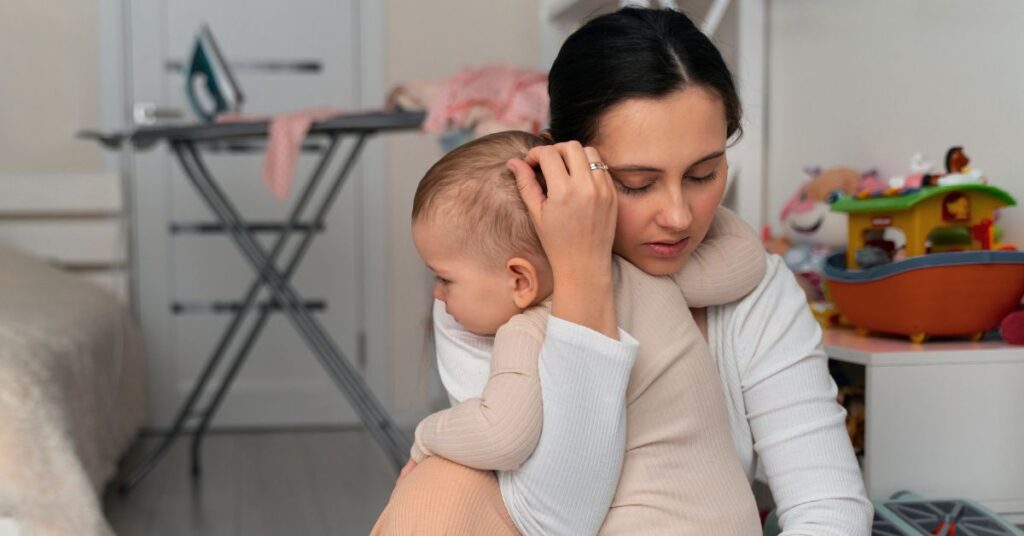Understanding your baby’s emotions during infancy builds the foundation for trust, security, and emotional stability. Emotional development in the first year of life plays a crucial role in shaping a child’s behavior, relationships, and coping mechanisms later in life.
A baby’s emotional responses are deeply connected to their sense of safety and interaction with caregivers. By responding appropriately and consistently, parents help establish a reliable emotional environment where the child feels valued and protected.
At the Pediatric Newborn Clinic, we help parents understand that consistent responsiveness and early emotional recognition have long-term benefits for both the child’s mental and emotional health. Understanding your baby’s emotions at this stage can also reduce stress and anxiety for parents, enabling a more confident and nurturing approach to caregiving.
Key Emotional Expressions in Infants
Understanding your baby’s emotions begins with recognizing the non-verbal ways babies communicate. Though they are unable to speak, babies display a variety of emotional states through behaviors that signal their needs and feelings.
1. Crying as a Primary Emotional Cue
Crying is often the first and most immediate expression of emotion in infants. It can indicate hunger, discomfort, fatigue, overstimulation, pain, or the need for attention. Understanding the variations in tone and intensity helps parents distinguish between types of cries and respond accordingly. Recognizing crying as a form of communication is central to understanding your baby’s emotions.
2. Smiling and Social Engagement
Smiling is a sign of emotional contentment and familiarity. As babies begin to recognize faces and environments, social smiles become a reliable indication of positive emotional states. Eye contact, cooing, and body relaxation often accompany these moments, indicating a baby’s comfort and emotional connection.
3. Fussiness and Physical Cues
Fussing, arching the back, clenched fists, or turning the head away can reflect frustration, discomfort, or emotional fatigue. These are early signs of a baby trying to regulate their emotions and should be met with calm reassurance.
4. Sudden Stillness or Withdrawal
In certain cases, babies may respond to overwhelming environments by withdrawing or becoming unusually quiet. These subtle signs can indicate emotional overstimulation or the need for rest. Understanding your baby’s emotions includes being attentive to moments of silence, not just vocal expressions.
Each of these responses is a component of a baby’s evolving emotional landscape. Recognizing them allows parents to engage with empathy and attentiveness.
Supporting Emotional Development in Early Childhood
Understanding your baby’s emotions is not only about recognition—it also involves intentional support that fosters emotional growth. Emotional development in infants relies heavily on consistent caregiver responses, sensory experiences, and social interaction.
At Pediatric Newborn Clinic, we recommend the following evidence-based practices to support emotional development:
1. Establish Routine and Predictability
Consistent daily routines provide a sense of stability, which is essential in early emotional development. A predictable structure for feeding, sleeping, and play helps babies feel secure and understand their surroundings. This structure supports emotional self-regulation and helps parents respond to emotional needs more effectively.
2. Provide Verbal and Non-Verbal Reassurance
Talking, humming, maintaining eye contact, and holding your baby close are essential tools in reassuring infants during emotional distress. Even before understanding language, babies associate tone, touch, and presence with emotional comfort. Understanding your baby’s emotions means recognizing when they need reassurance without delay.
3. Encourage Safe Exploration
As babies grow, their emotional understanding deepens through interaction and exploration. Providing a safe space to explore and respond to new stimuli enhances confidence and emotional resilience. Supervised exploration helps babies build self-awareness while relying on the caregiver’s presence for emotional grounding.
4. Observe and Respond with Patience
Each baby is unique, and emotional responses vary widely. Observing patterns over time and responding with calm patience builds trust. Overreaction or inconsistency can create confusion and distress. Understanding your baby’s emotions requires thoughtful, measured engagement from parents.
When to Consult a Pediatrician for Emotional Concerns
While emotional development progresses naturally for most infants, some signs may require professional evaluation. Parents should consult a pediatric specialist at Pediatric Newborn Clinic if they notice the following:
- Lack of eye contact or social engagement by 3–4 months of age
- Limited emotional expression or minimal reaction to caregivers
- Excessive irritability, inconsolable crying, or unresponsiveness
- Failure to show joy or excitement in familiar environments
- Noticeable delays in facial expression or physical interaction
Early assessment allows for timely interventions and can significantly improve developmental outcomes. Understanding your baby’s emotions includes knowing when professional guidance is necessary.
Conclusion
Understanding your baby’s emotions is a core aspect of responsible and responsive parenting. Emotional signals in infancy are subtle yet powerful, offering insight into your child’s comfort, needs, and well-being. By recognizing these signals and responding with consistency, parents support not only emotional stability but also cognitive and social development.
At the Pediatric Newborn Clinic, our commitment extends beyond physical care. We believe that early emotional understanding strengthens the parent-child bond and builds the foundation for lifelong mental and emotional health. Our pediatric team is available to assist parents in interpreting emotional cues and providing guidance throughout every stage of infancy.For expert pediatric care that includes support in understanding your baby’s emotions, we welcome you to connect with the Pediatric Newborn Clinic. Together, we can ensure a nurturing environment for your baby’s complete developmental journey.



